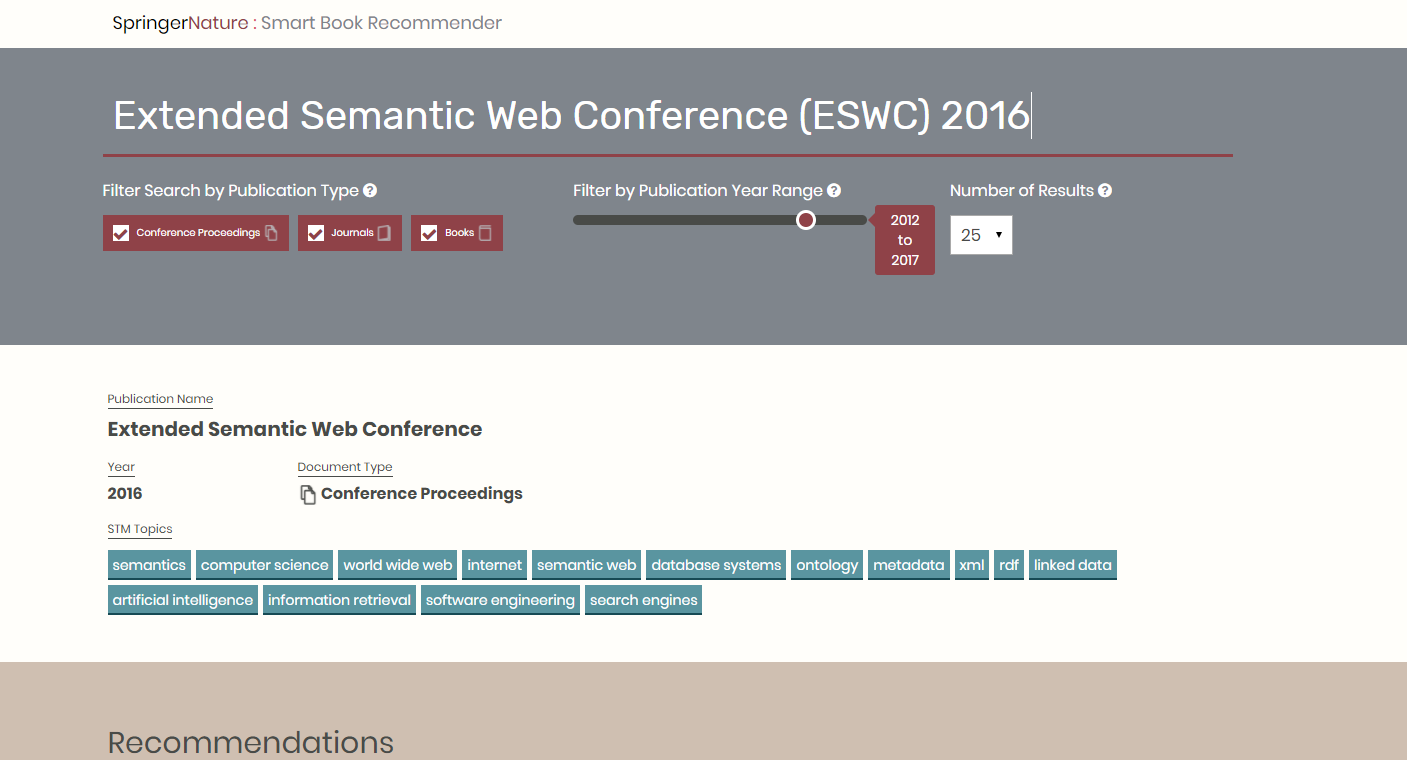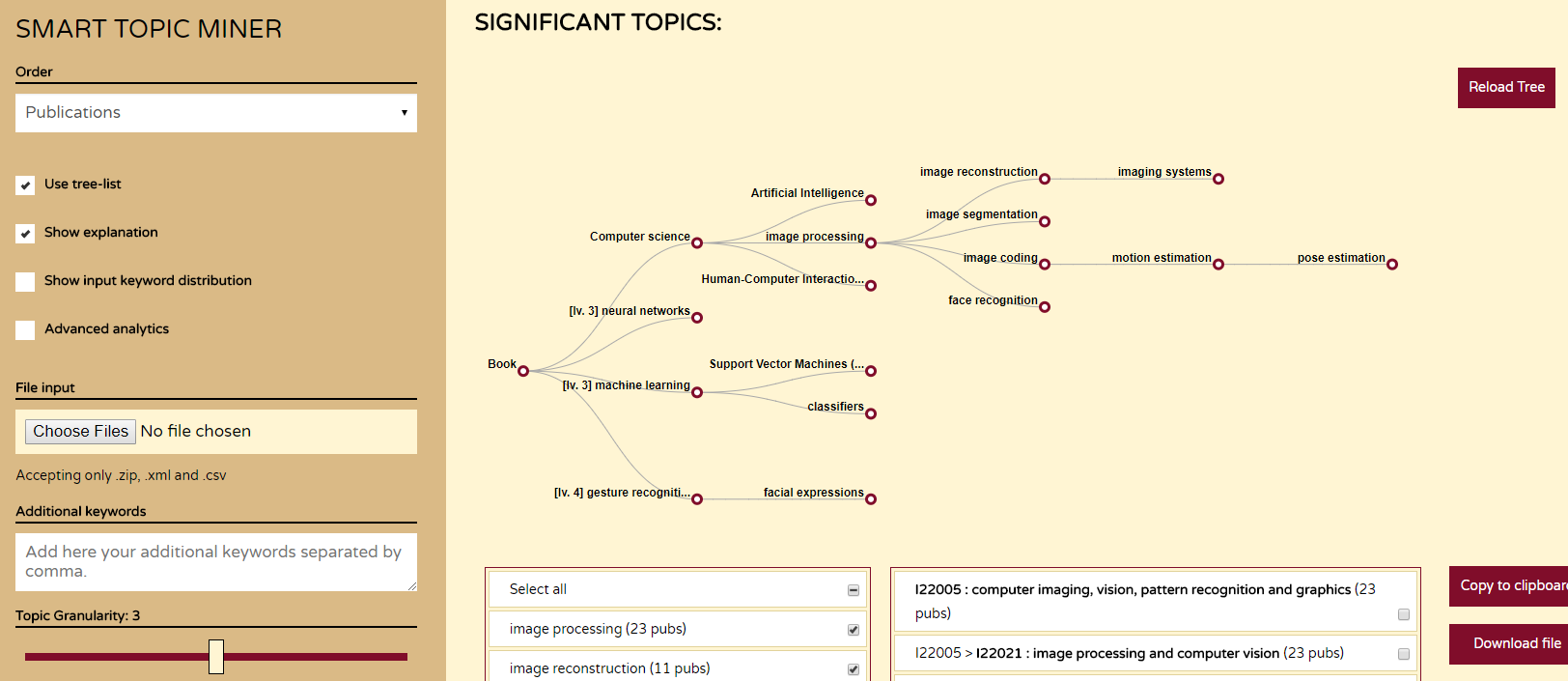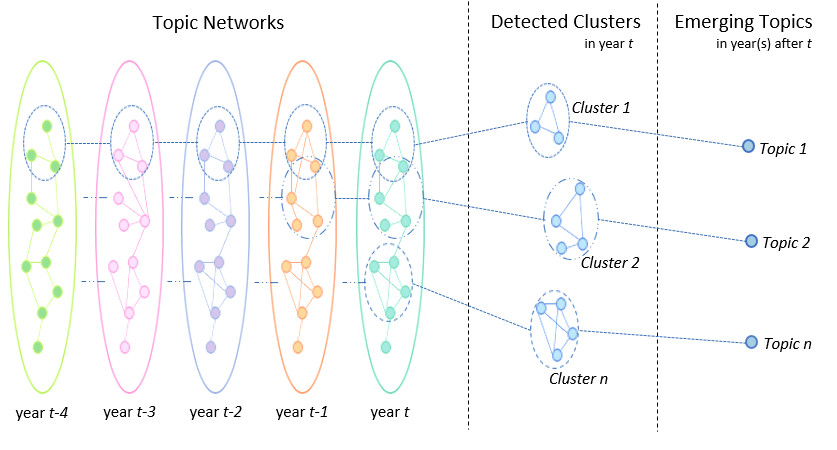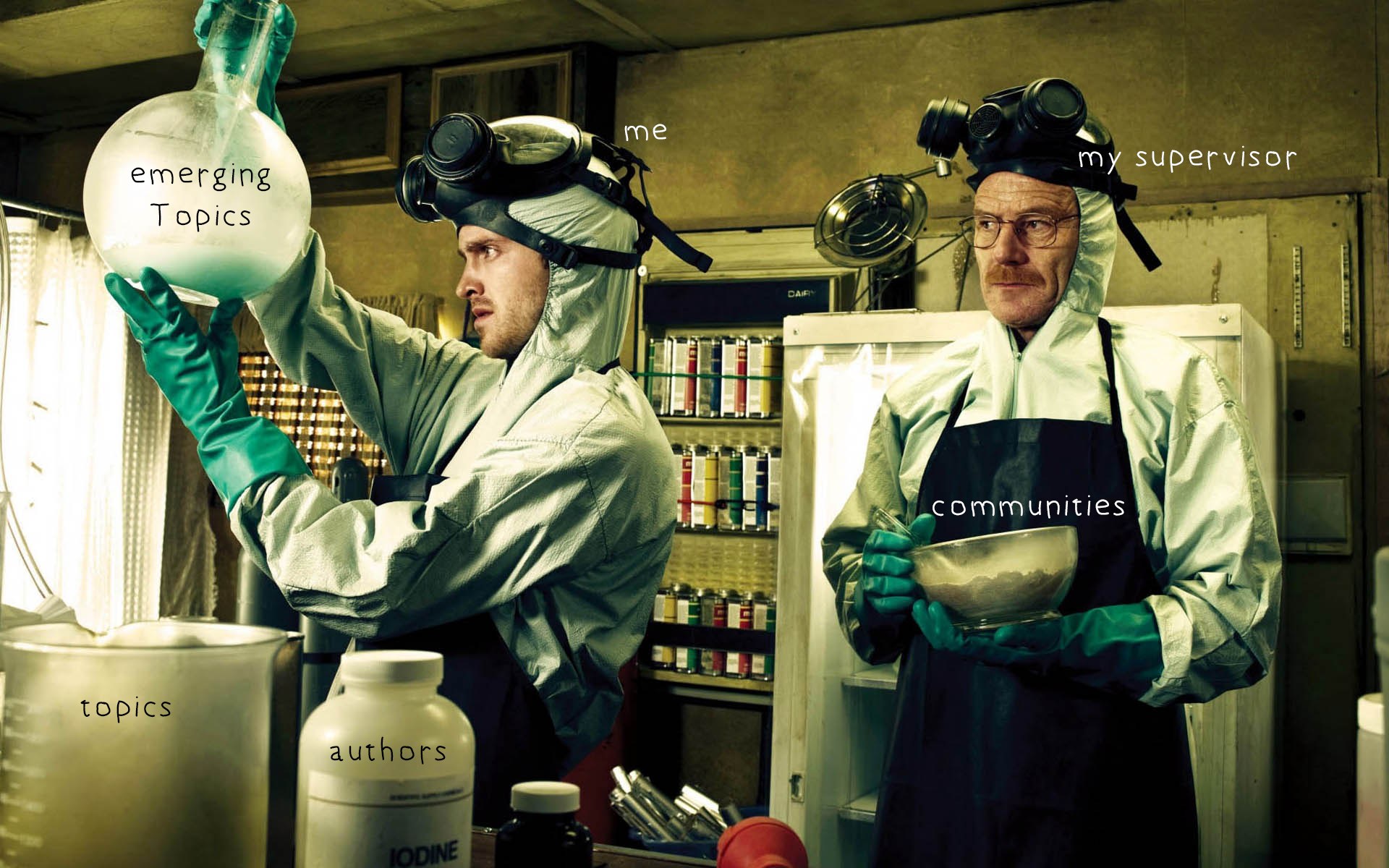On the 29th November 2017, myself with two KMi colleagues (Andrea Mannocci and Thiviyan Thanapalasingam) attended the second edition of SpringerNature HackDay in London (@ SpringerNature Campus). Aliaksandr Birukou, Executive Editor of Computer Science at Springer Nature and collaborator of our research team at the Knowledge Media Institute, also joined our group on the HackDay. The whole […]
Category: Semantic Web

Smart Book Recommender
The Smart Book Recommender (SBR) is a semantic application designed to support the Springer Nature editorial team in promoting their publications at Computer Science venues. It takes as input the proceedings of a conference and suggests books, journals, and other conference proceedings that are likely to be relevant to the attendees of the conference in question. It […]

2100 AI: Reflections on the mechanisation of scientific discovery
“2100 AI: Reflections on the mechanisation of scientific discovery” is a paper submitted to the RE-CODING BLACK MIRROR Workshop co-located with the International Semantic Web Conference (ISWC) 2017, 21-25 October 2017, Vienna, Austria. Authors Andrea Mannocci, Angelo Salatino, Francesco Osborne and Enrico Motta Abstract The pace of nowadays research is hectic. Datasets and papers are […]

Supporting Springer Nature Editors by means of Semantic Technologies
“Supporting Springer Nature Editors by means of Semantic Technologies” is a research paper accepted to the Industry Track at the International Semantic Web Conference (ISWC) 2017 , 21-25 October 2017, Vienna, Austria. Authors Francesco Osborne, Angelo Salatino, Thiviyan Thanapalasingam, Aliaksandr Birukou and Enrico Motta Abstract The Open University and Springer Nature have been collaborating since 2015 […]

Smart Book Recommender: A Semantic Recommendation Engine for Editorial Products
“Smart Book Recommender: A Semantic Recommendation Engine for Editorial Products” is a poster paper that will be presented at the International Semantic Web Conference (ISWC) 2017, 21-25 October 2017, Vienna, Austria. Authors Francesco Osborne, Thiviyan Thanapalasingam, Angelo Salatino, Aliaksandr Birukou and Enrico Motta Abstract Academic publishers, such as Springer Nature, need to constantly make informed decisions […]

Early Detection of Research Trends
Being able to rapidly recognise new research trends is strategic for many stakeholders, including universities, institutional funding bodies, academic publishers and companies. The literature presents several approaches to identifying the emergence of new research topics, which rely on the assumption that the topic is already exhibiting a certain degree of popularity and consistently referred to by a community of researchers. However, detecting the emergence of a new research area at an embryonic stage, i.e., before the topic has been consistently labelled by a community of researchers and associated with a number of publications, is still an open challenge.

3MT – Early detection of research trends
On 16th May 2017, the STEM Faculty of my university organised a 3 Minutes Thesis (3MT) in which each candidate has a time slot of three minutes to describe their thesis. The speech can be supported by one static slide showing important features of the work. I wish I had shown the one above. In […]

Department Research Seminar: Early Detection of Research Topics
On the 8th February I delivered a seminar to my department (KMi @ OU) in which I described the work I have been doing in the last two years for my postgraduate research. I started with a little bit of introduction about science. Shortly, I moved to the currently available technologies for keeping track of the […]

Smart Topic Miner
Smart Topic Miner (STM) is a web application which uses Semantic Web technologies to classify scholarly publications on the basis of Computer Science Ontology (CSO), a very large automatically generated ontology of research areas. STM was developed to support the Springer Nature Computer Science editorial team in classifying proceedings in the LNCS family. It […]
Ontology Forecasting in Scientific Literature: Semantic Concepts Prediction based on Innovation-Adoption Priors
“Ontology Forecasting in Scientific Literature: Semantic Concepts Prediction based on Innovation-Adoption Priors” is a peer-reviewed paper presented on Tuesday 22nd November 2016 at the “Entity detection, matching and evolution” session at the 20th International Conference on Knowledge Engineering and Knowledge Management, Bologna, Italy Authors: Amparo Elizabeth Cano-Basave, Francesco Osborne and Angelo Antonio Salatino Abstract: The […]



